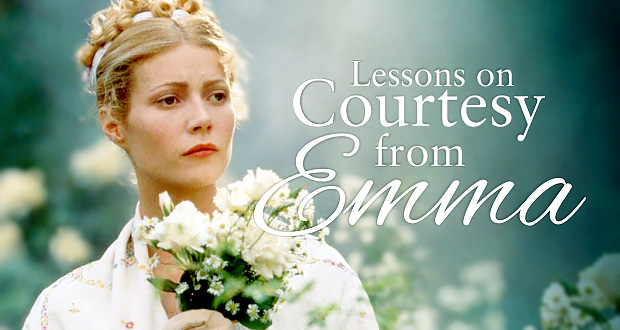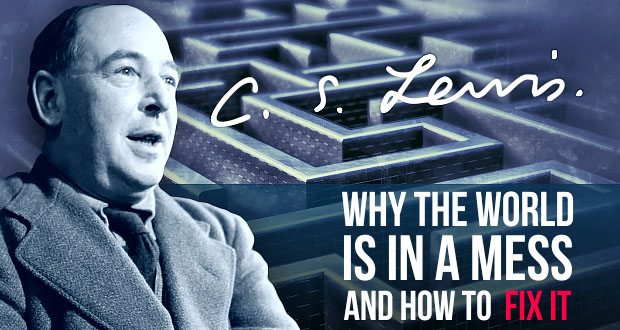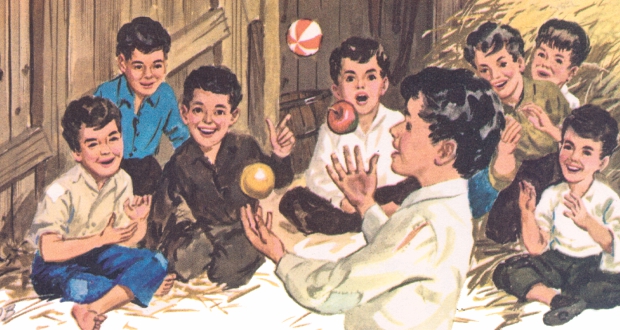Dr. Mitchell Kalpakgian
April 30, 2014
10,164 Views
by Mitchell Kalpakgian | In Willa Cather’s My Antonia, Jimmy Burden, the narrator who relates the story of his life in Nebraska and the lives of the immigrant families who settled in the Midwest, recalls an illuminating moment in his study of Virgil at the University of Nebraska.
Read More »
Dr. Mitchell Kalpakgian
April 23, 2014
10,453 Views
by Mitchell Kalpakgian | The world’s great writers never cease to marvel at the world’s lack of common sense. Why does man, famously identified by Aristotle as a “rational animal” with an inborn desire for truth (“All men by nature desire to know,” he writes in the Metaphysics) demonstrate so many forms of folly that another great writer, Henry Fielding, remarked that a comic writer can never lack material for satire and laughter because “life everywhere furnishes an accurate observer with the ridiculous.”
Read More »
Dr. Mitchell Kalpakgian
April 16, 2014
8,934 Views
by Mitchell Kalpakgian | It is common to hear students dismiss certain fields of knowledge as useless to their profession and career. Why should students majoring in information technology, accounting, music, or biology study philosophy, literature, or Latin? Surely they will not need this knowledge in their specialized, technical fields of study.
Read More »
Dr. Mitchell Kalpakgian
April 9, 2014
8,236 Views
by Mitchell Kalpakgian | According to the worldly wise, the end justifies the means. If one achieves his ambitions, he need not be scrupulous or squeamish for doing what most people do—even if they are dishonest.
Read More »
Dr. Mitchell Kalpakgian
March 25, 2014
9,429 Views
by Mitchell Kalpakgian | The custom of visiting on Sundays and holidays, once a natural part of a human life, has waned in the last fifty years. Visitors feel the obligation to call in advance and ask permission lest they impose or inconvenience their hosts. Hosts who receive visitors sense the need to have ample provisions...
Read More »
Dr. Mitchell Kalpakgian
March 20, 2014
7,826 Views
by Mitchell Kalpakgian | The French phrase “déjà vu” (already seen) carries a negative connotation. If something is déjà vu, it means that one has done something, been someplace, or had an experience that he does not want to repeat, revisit, or undergo again.
Read More »
Dr. Mitchell Kalpakgian
March 13, 2014
8,058 Views
by Mitchell Kalpakgian | In the “Preface” to The Great Divorce C. S. Lewis explains the nature of moral error in the modern world as an endless progression on the wrong road-- the assumption that all roads sooner or later lead to the same destination.
Read More »
Dr. Mitchell Kalpakgian
March 8, 2014
8,662 Views
by Dr Kalpakgian | By giving Curdie “some” of the truth Irene led him to “all” of it. By giving Curdie time and being content to be misunderstood for a short period, Irene led her friend to the fullness of the truth. To be a messenger like Irene is to speak the simple truth and let God do the rest.
Read More »
Dr. Mitchell Kalpakgian
February 25, 2014
7,104 Views
by Mitchell Kalpakgian | According to Chauntecleer, books are the final authority of truth. Pertelote, who stays below in the farmyard, views the subject of dreams exclusively in terms of personal experience. Never in her life does she remember a dream that came true.
Read More »
Dr. Mitchell Kalpakgian
February 18, 2014
9,550 Views
by Mitchell Kalpakgian | Listening to the talk shows on television every night, watching athletic events all day Saturday and Sunday, and spending hours on the Internet do not organize the day, deserve priority, or require the discipline of will power. They do not breathe life, nourish the mind, or lift the soul. A person does not need more time to do these essential things but a greater desire to do first things first.
Read More »
Dr. Mitchell Kalpakgian
February 13, 2014
9,003 Views
by Mitchell Kalpakgian | The whole episode made no sense to him, and he was at a loss for some possible explanation for his great frustration. The only comfort his mind offers is the knowledge that the accident was not a great tragedy. He acknowledges with gratitude the escape from other “torments and evils to which even this wasted wine would have seemed a wretched jest.”
Read More »
Dr. Mitchell Kalpakgian
February 6, 2014
8,455 Views
So often in human life we wonder if someone is going to call, coming to visit, or going to write us a letter. We assume that we are to expect, ...
Read More »
Dr. Mitchell Kalpakgian
January 30, 2014
8,258 Views
How easy it is to neglect these amenities of manners that consist of attention to seemingly minor things of no consequence: a thank you note, a compliment, a visit. How convenient it is to use the excuse of busyness with important affairs to avoid attention to small details.
Read More »
Dr. Mitchell Kalpakgian
January 16, 2014
7,565 Views
Contemplation is a form of looking inspired by wonder that moves a person to continue looking at a great work of art or to remain thinking about a great idea, divine miracle, or mystery.There is so much to see or know that one lingers to see more and to think more deeply.
Read More »
Dr. Mitchell Kalpakgian
January 9, 2014
7,095 Views
This great design of awaiting the next pleasure forms the master plan of life designed by a wise Creator who orients man toward the future with hope. No one ever truly wants to return to the past or dreams of recovering the fountain of youth.
Read More »
Dr. Mitchell Kalpakgian
January 2, 2014
8,845 Views
Words, like music, can create harmony or discord. Words, like certain fine instruments, can refine and beautify or, like blunt tools, can break and smash. The art of living requires sensitivity to the choice of words, to the tone of voice, and to the manner of speech.
Read More »
Dr. Mitchell Kalpakgian
December 26, 2013
6,502 Views
Of course civility dictates that a person strive to make a good appearance that befits the occasion in an honest expression of who he or she is, and the person in the role of judge must take into consideration the fact that a first impression may be insufficient grounds for a correct interpretation.
Read More »
Dr. Mitchell Kalpakgian
December 19, 2013
8,329 Views
It is possible to take many things too seriously. Coaches and athletes can take winning too seriously (It’s only a game). The avaricious and the miserly who worship gold take money too seriously (It’s only metal or paper). Politicians can take elections and political power too seriously (They are not the salvation of the world). Scholars can take learning too seriously and presume that man is god and that human knowledge supersedes divine wisdom (“Even though a wise man claims to know, he cannot find it out,” Solomon states in Ecclesiastes).
Read More »
Dr. Mitchell Kalpakgian
December 12, 2013
11,563 Views
Members of a family know each other too well to be fooled by brother’s daydream to be a millionaire, sister’s fantasy to be a great actress, or grandson’s ambition to be a professional athlete. The family teaches humility, self-knowledge, the art of the possible, and the way things are.
Read More »
Dr. Mitchell Kalpakgian
December 5, 2013
8,627 Views
In Robert Frost’s famous poem “The Road Not Taken,” a traveler recalls a moment in his life when he reached a crossroads. He comes to a turning point on the journey and pauses to consider which path to follow. Both roads have fair prospects and great allure.
Read More »


 Seton Magazine Catholic Homeschool Articles, Advice & Resources
Seton Magazine Catholic Homeschool Articles, Advice & Resources


















